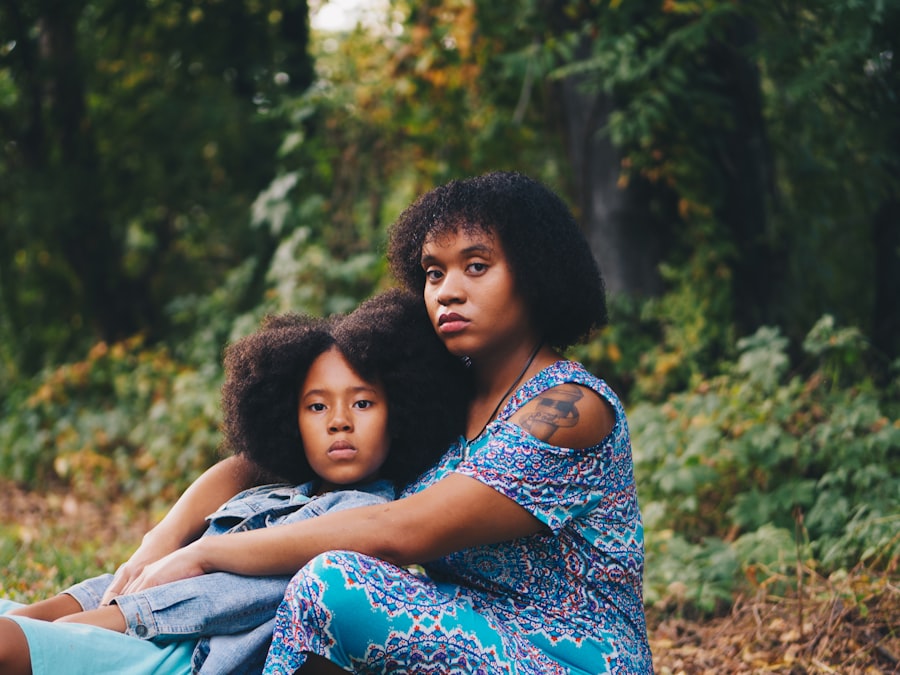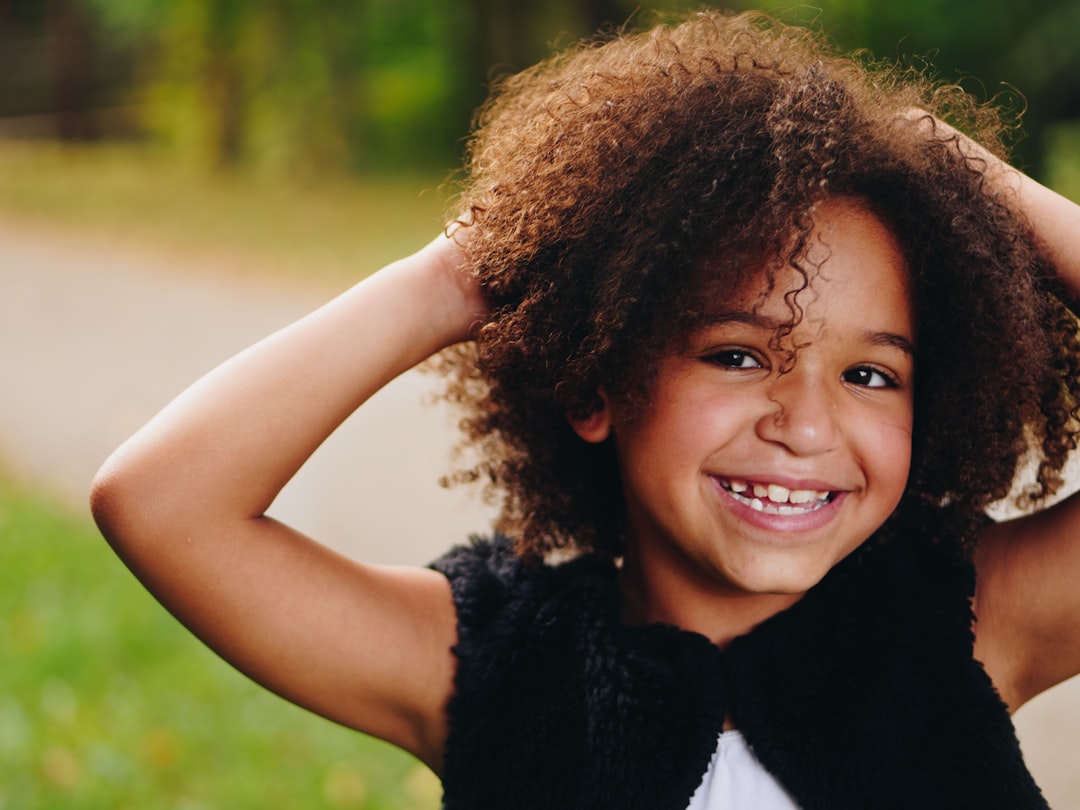Hair loss can be a deeply personal and often distressing experience, particularly for Black women, who have a rich cultural history tied to their hair. Understanding the underlying causes of hair loss is crucial for you to address the issue effectively. One of the primary factors contributing to hair loss in Black women is the use of certain hairstyles and hair care practices.
Tight braids, weaves, and chemical treatments can lead to traction alopecia, a condition where hair is pulled from the roots, causing thinning and bald patches. The allure of these styles often comes with a hidden cost, as they can place undue stress on your hair follicles. Additionally, genetics plays a significant role in hair loss.
If you have a family history of hair thinning or baldness, you may be more susceptible to experiencing similar issues. Hormonal changes, particularly those related to pregnancy, menopause, or conditions like polycystic ovary syndrome (PCOS), can also trigger hair loss. Understanding these factors can empower you to make informed decisions about your hair care and styling choices, ultimately leading to healthier hair.
Key Takeaways
- Hair loss in black women can be caused by factors such as genetics, hormonal imbalances, and certain hairstyles and treatments.
- Different types of hair loss in black women include traction alopecia, central centrifugal cicatricial alopecia, and androgenetic alopecia.
- A healthy hair care routine for black women includes using gentle products, minimizing heat and chemical treatments, and protecting hair at night.
- Seeking professional help and treatment options such as topical treatments, oral medications, and hair transplants can help address hair loss in black women.
- Embracing protective hairstyles and techniques like braids, twists, and wigs can help minimize damage and promote hair growth in black women.
Identifying the Different Types of Hair Loss in Black Women
Androgenetic Alopecia: Female Pattern Baldness
This condition typically manifests as thinning at the crown or temples and is influenced by genetic predisposition and hormonal changes.
Alopecia Areata: An Autoimmune Disorder
Another prevalent form of hair loss is alopecia areata, an autoimmune disorder that causes sudden patches of hair loss. This condition can be particularly alarming as it may occur without warning and affect any area of the scalp or body.
Telogen Effluvium: Stress-Related Hair Loss
Telogen effluvium is another type that can result from stress, illness, or hormonal changes, leading to diffuse thinning across the scalp. By identifying the specific type of hair loss you are facing, you can tailor your approach to treatment and care more effectively.
Adopting a Healthy Hair Care Routine

Establishing a healthy hair care routine is vital for maintaining the strength and vitality of your hair. You should start by choosing gentle cleansing products that are free from harsh sulfates and chemicals. Opt for shampoos and conditioners specifically formulated for your hair type, as these products can help retain moisture and prevent breakage.
Regularly moisturizing your hair is equally important; consider using leave-in conditioners or natural oils like coconut or jojoba oil to keep your strands hydrated. Incorporating regular trims into your routine can also help prevent split ends and promote healthy growth. Aim to trim your hair every six to eight weeks, depending on your hair’s condition.
Additionally, be mindful of how often you manipulate your hair; excessive styling can lead to damage over time. By adopting a consistent and nurturing hair care routine, you can create an environment that supports healthy growth and minimizes the risk of further loss.
Seeking Professional Help and Treatment Options
| Treatment Options | Professional Help |
|---|---|
| Therapy | Psychologist |
| Medication | Psychiatrist |
| Support Groups | Counselor |
| Residential Treatment | Therapist |
If you find that your hair loss persists despite your best efforts at home, seeking professional help may be necessary. A dermatologist or trichologist can provide valuable insights into the underlying causes of your hair loss and recommend appropriate treatments. They may conduct a thorough examination of your scalp and hair follicles, possibly including blood tests to check for hormonal imbalances or nutritional deficiencies.
Treatment options vary widely depending on the cause of your hair loss. For some, topical treatments like minoxidil may be recommended to stimulate growth. Others may benefit from oral medications or even procedures such as PRP (platelet-rich plasma) therapy, which involves injecting your own platelets into the scalp to promote healing and growth.
By consulting with a professional, you can explore tailored solutions that address your unique situation.
Embracing Protective Hairstyles and Techniques
Protective hairstyles are an excellent way to shield your hair from damage while allowing it to grow. Styles such as braids, twists, and updos can help minimize manipulation and reduce exposure to environmental stressors. However, it’s essential to ensure that these styles are not too tight, as this can lead to traction alopecia.
When opting for protective styles, consider using extensions that are lightweight and do not place excessive tension on your natural hair. In addition to choosing the right styles, employing techniques that promote scalp health is crucial. Regularly massaging your scalp can stimulate blood flow and encourage growth while also providing a moment of relaxation.
You might also want to incorporate silk or satin scarves or pillowcases into your routine; these materials help reduce friction and prevent breakage while you sleep. By embracing protective hairstyles and techniques thoughtfully, you can create a nurturing environment for your hair.
Incorporating Nutritious Foods and Supplements into Your Diet

Your diet plays a significant role in the health of your hair. Incorporating nutrient-rich foods can provide your body with the essential vitamins and minerals needed for optimal growth. Foods high in protein, such as lean meats, fish, beans, and legumes, are vital since hair is primarily made up of protein.
Additionally, incorporating foods rich in omega-3 fatty acids—like salmon, walnuts, and flaxseeds—can help nourish your scalp and promote healthy follicles. Supplements may also be beneficial if you’re struggling to meet your nutritional needs through diet alone. Biotin is often touted for its potential benefits for hair health; however, it’s essential to consult with a healthcare professional before starting any new supplement regimen.
Other vitamins such as vitamin D, iron, and zinc are also crucial for maintaining healthy hair growth. By focusing on a balanced diet rich in these nutrients, you can support not only your hair but also your overall well-being.
Managing Stress and Its Impact on Hair Loss
Stress is an often-overlooked factor that can significantly impact your hair health. When you’re under stress, your body produces hormones like cortisol that can disrupt the normal hair growth cycle, leading to increased shedding or thinning. Recognizing the signs of stress in your life is the first step toward managing its effects on your hair.
Incorporating stress-reducing practices into your daily routine can make a world of difference. Activities such as yoga, meditation, or even simple breathing exercises can help calm your mind and reduce anxiety levels. Engaging in regular physical activity not only boosts your mood but also improves blood circulation throughout your body, including your scalp.
By prioritizing stress management techniques, you can create a more balanced lifestyle that supports both mental health and healthy hair growth.
Celebrating and Embracing Your Natural Beauty
Ultimately, embracing your natural beauty is an empowering journey that goes beyond just addressing hair loss. Your hair is an integral part of your identity and cultural heritage; celebrating its uniqueness can foster self-acceptance and confidence. Whether you choose to wear it natural, styled in protective hairstyles, or opt for wigs or extensions, what matters most is how you feel about yourself.
Engaging with communities that celebrate natural beauty can also provide support and inspiration. Sharing experiences with others who understand the challenges you face can foster a sense of belonging and empowerment. Remember that beauty comes in many forms; by embracing your natural self—flaws and all—you contribute to a broader narrative that values diversity and authenticity in beauty standards.
In conclusion, navigating the complexities of hair loss as a Black woman involves understanding its causes, identifying types of loss, adopting healthy routines, seeking professional help when needed, embracing protective styles, focusing on nutrition, managing stress effectively, and ultimately celebrating your unique beauty. By taking these steps, you empower yourself not only to address hair loss but also to embrace the beauty that lies within you.
If you are looking for expert tips on hair loss in black women, you should check out the article on inlaserhairremoval.
com/blog/’>In Laser Hair Removal’s blog. This article provides valuable insights and advice from professionals in the field, offering solutions and recommendations for managing hair loss in black women. It is a must-read for anyone dealing with this issue and seeking expert guidance.
FAQs
What are the common causes of hair loss in black women?
Some common causes of hair loss in black women include traction alopecia from tight hairstyles, chemical damage from relaxers and other hair treatments, hormonal imbalances, and certain medical conditions such as alopecia areata and lupus.
What are some tips for preventing hair loss in black women?
To prevent hair loss, black women should avoid tight hairstyles that pull on the hair, minimize the use of chemical treatments, maintain a healthy diet rich in vitamins and minerals, and manage stress levels. Regular scalp massages and using gentle hair care products can also help prevent hair loss.
What are some effective treatments for hair loss in black women?
Effective treatments for hair loss in black women may include minoxidil, corticosteroid injections, and topical corticosteroids. In some cases, hair transplants or scalp micropigmentation may be recommended. It’s important to consult with a dermatologist or hair loss specialist to determine the best treatment for individual needs.
How can black women promote hair growth and maintain healthy hair?
Black women can promote hair growth and maintain healthy hair by using gentle hair care products, avoiding excessive heat and chemical treatments, eating a balanced diet rich in protein and essential nutrients, and practicing good scalp hygiene. Regular trims and protective hairstyles can also help maintain healthy hair.






